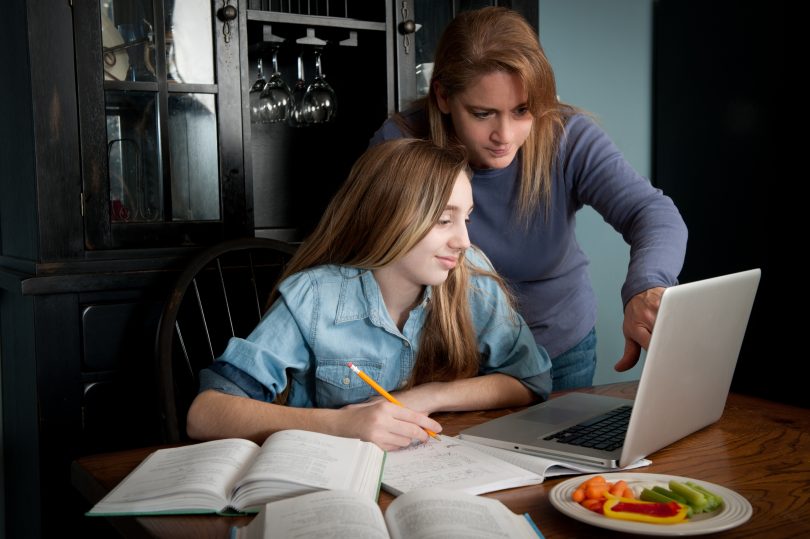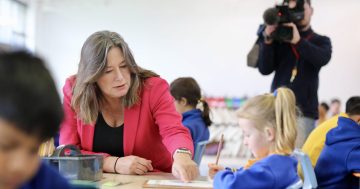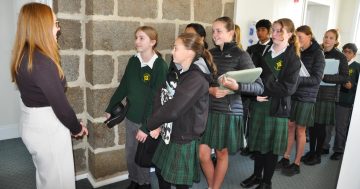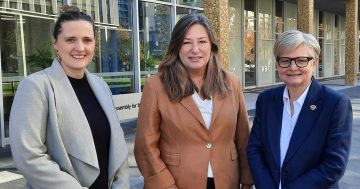
Home learning may exacerbate the advantages the wealthy and capable already have. Photo: File.
There is another big curve the ACT Government has to deal with besides COVID-19, although it’s a direct consequence of the virus that’s shutting down our economy and lifestyle.
It’s the steep learning curve our public schools and teachers are climbing to keep up a quality education to children stuck at home or, if their parents are essential workers or there are other reasons why home can’t become a classroom, to those re-directed to the still to be determined learning hubs.
Despite all the reassurances that schools were safe, parents have voted with their feet, forcing education departments to come up with an alternative. Only 2.5 per cent of ACT public school students turned up last week, according to Education Minister Yvette Berry, who admitted the move to remote schooling next term was a learning opportunity for everyone.
Indeed, the research on digital learning is far from conclusive about its benefits and disadvantages, but this is the hand we have been dealt.
Most of the big private schools were already heading down this path, confident that its well-heeled, well-equipped and tech-savvy clientele was capable of making the adjustment.
While most of Canberra could also be cast in this privileged role, the public education system nonetheless faces bigger challenges than its private cousins.
It caters for the broad population, including the not so well-off and the outright disadvantaged, and plays a vital role in providing equality of opportunity and binding the community in general together.
Equity is at the heart of the ACT Government’s education philosophy, yet in the remote learning environment it is not just access to technology that is an issue but the potential for the disorganised, dislocated and distracted to be rendered invisible away from the watchful eye of the classroom teacher.
The government is ensuring that any family in need of devices and internet access will have it. What it can’t fix will be individual family living circumstances, fractured relationships, and ambivalent or time-poor carers.
For many children, school provides structure, safety and solidarity that for whatever reasons may be missing elsewhere, and their teachers are mentors and role models as much as anything.
Ms Berry says support will be available for those who need it, including school psychologists, but one cannot help wondering if the brave new world of remote learning will only exacerbate the advantages that the wealthy, the confident and already capable will have.
In some ways, it may well suit the quiet, introspective and socially awkward, but at the cost of other aspects of their education.
And a teacher in the classroom can observe the whole group, identifying their different personalities and individual needs to ensure none are overlooked.
It’s not as if they won’t be communicating – phone, email, chat rooms, video, Zoom – and teachers will still be central to the process.
But it won’t be the same oversight, physical and emotional interaction or hands-on teaching that is at the core of real communication and education, and what defines us as human beings.
Then there will be a debate about the flexible school day instead of the 9:00 am to 3:00 pm schedule. Some private schools are insisting students dress in uniform as usual and stick to the timetable to maintain routine and structure.
There is no doubt the directorate and its teachers are committed to delivering a quality education and do not want any child to be left behind.
But inevitably that will happen. Learning gaps will appear, and for some parents the choice next year will be whether their child should move up or repeat the year, particularly for the young.
The well-known Matthew effect describes how small differences in the early years become large ones later in a child’s education and parents may not want to take the chance.
Low-tech, hands-on education philosophies such as Montessori and Steiner will face their own particular challenges.
For all that, we should be grateful that in this time of coronavirus, there is an alternative learning model, that technology and the internet can actually deliver remote schooling, that so much information can be at our fingertips.
Whether that amounts to the acquisition of knowledge for all is another matter.
The curve will be steep, and the endeavour will be a massive social experiment from which we, as the Minister has said, will learn much. No doubt the lessons will be applied to communities in actual remote situations.
But this much we do know: teachers and the face-to-face learning experience they provide are irreplaceable.




















